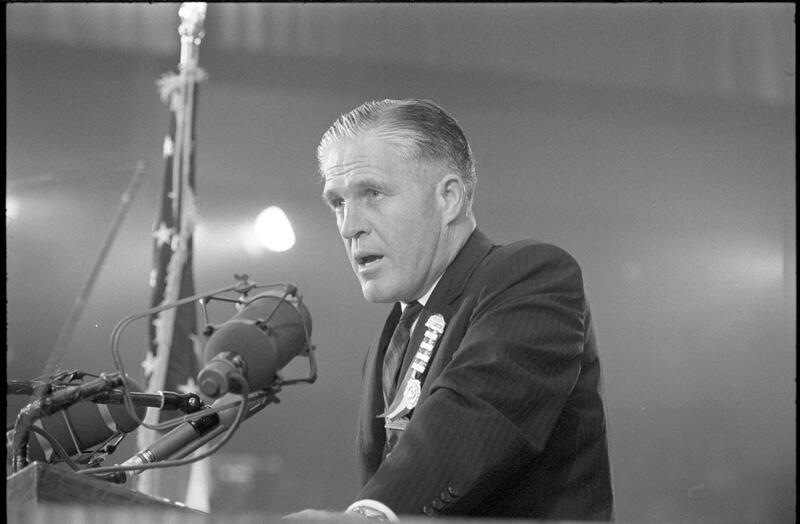Within the pages of both The Atlantic and The New York Times this week, the nation’s most morally minded public commentator, David Brooks, called on America to “Grow Up!”
He drew on the teachings of Elder David A. Bednar of the Quorum of the Twelve Apostles in The Church of Jesus Christ of Latter-day Saints. “One of the greatest indicators of our own spiritual maturity is revealed in how we respond to the weaknesses, the inexperience and the potentially offensive actions of others,” Elder Bednar said in his seminal address, titled “And Nothing Shall Offend Them,” which Brooks quoted.

In the column, Brooks went on to argue that the “ability to respond with understanding when other people have done something stupid” is a “sign of maturity.”
That’s not a word many of us are accustomed to hearing — “maturity.” But in this current political moment — where increasing numbers of adults can’t seem to be trusted with adult tasks — the word “maturity” is making something of a comeback.
Reflecting on the political landscape in recent years, John Kesler, board chair of the Younify depolarization initiative, suggested “so many of our political leaders in America lack adequate maturity,” which he argued was “a primary cause of the severe dysfunction of Congress.” Kesler went on to enjoin “how much we need to seek for greater maturity in our elected leadership.”
As the Deseret News recently observed, the sitting President Joe Biden is being investigated by Republicans in the U.S. House for his connections to his son Hunter Biden’s foreign business deals and criminal charges — which are also now under investigation by a federally appointed prosecutor. And the front-runner of the Republican Party is, as of today, facing no less than four indictments on charges of attempting to overturn the 2020 election, hiding classified documents and falsifying business records.
A new national poll conducted by HarrisX for the Deseret News found majorities of both Democrats and Republicans are now favoring an emphasis on moral leadership over a focus on “practical outcomes,” when it comes to political candidates.
Writing also in The Atlantic, Brooks expounded on the “emotional, relational and spiritual crisis” that “undergirds our political dysfunction and the general crisis of our democracy.” While acknowledging complex influences from a variety of quarters, Brooks proposed the heart of the problem is “we inhabit a society in which people are no longer trained in how to treat others with kindness and consideration.”

For Kesler, Brooks and Elder Bednar alike, our problems are so often rooted in deeper spiritual and moral dynamics.
Others are pointing out this same moral ecosystem that’s impacting politics is affecting America’s corporate and economic cultures. While the left has long critiqued excesses in markets and industry, now voices on the right — including Sohrab Ahmari and Patrick Deneen — are talking more about the ways Big Tech and other industries impact family life, faith and social cohesion.
The latest left-of-center contribution to this conversation comes from Pulitzer Prize winner and New York Times writer David Leonhardt, whose forthcoming book “Ours Was the Shining Future” examines how the nation is losing the American dream. At this summer’s Aspen Ideas Festival, he pointed to ways our economy and corporate practices have come to overlook too many.
Toward the end of his remarks, he pivoted to George Romney and his son Mitt Romney as examples of “extremely honorable people” in the business world and products of a common good corporate culture.
“George Romney turned down bonuses, when he was the president of American Motors, because he considered it unseemly to make so much money,” he said.

“I don’t think he did that because he was a better person than any of us” Leonhardt clarified, emphasizing the importance of a surrounding culture at the time that said “corporate America needs to care about our living in a high wage economy that produces broad prosperity” in various ways.
That culture, however, is more likely when “honorable people” are formed and shaped within spiritual traditions that in turn make individuals better who collectively change culture.
That’s what Brooks seems to be pointing toward. Our nation won’t be able to solve its political problems, lift people out of poverty or reinvigorate the American dream until citizens and communities rediscover a guiding light and revive their quest for, in Elder Bednar’s words, greater spiritual maturity.
Back in the 1960s, George Romney mused to Time magazine: “I could easily have become excessively occupied with industry.” But, he continued, “sharing responsibility for church work has been a vital counterbalance in my life.” Or, as he put it more succinctly, “My religion is my most precious possession.”



